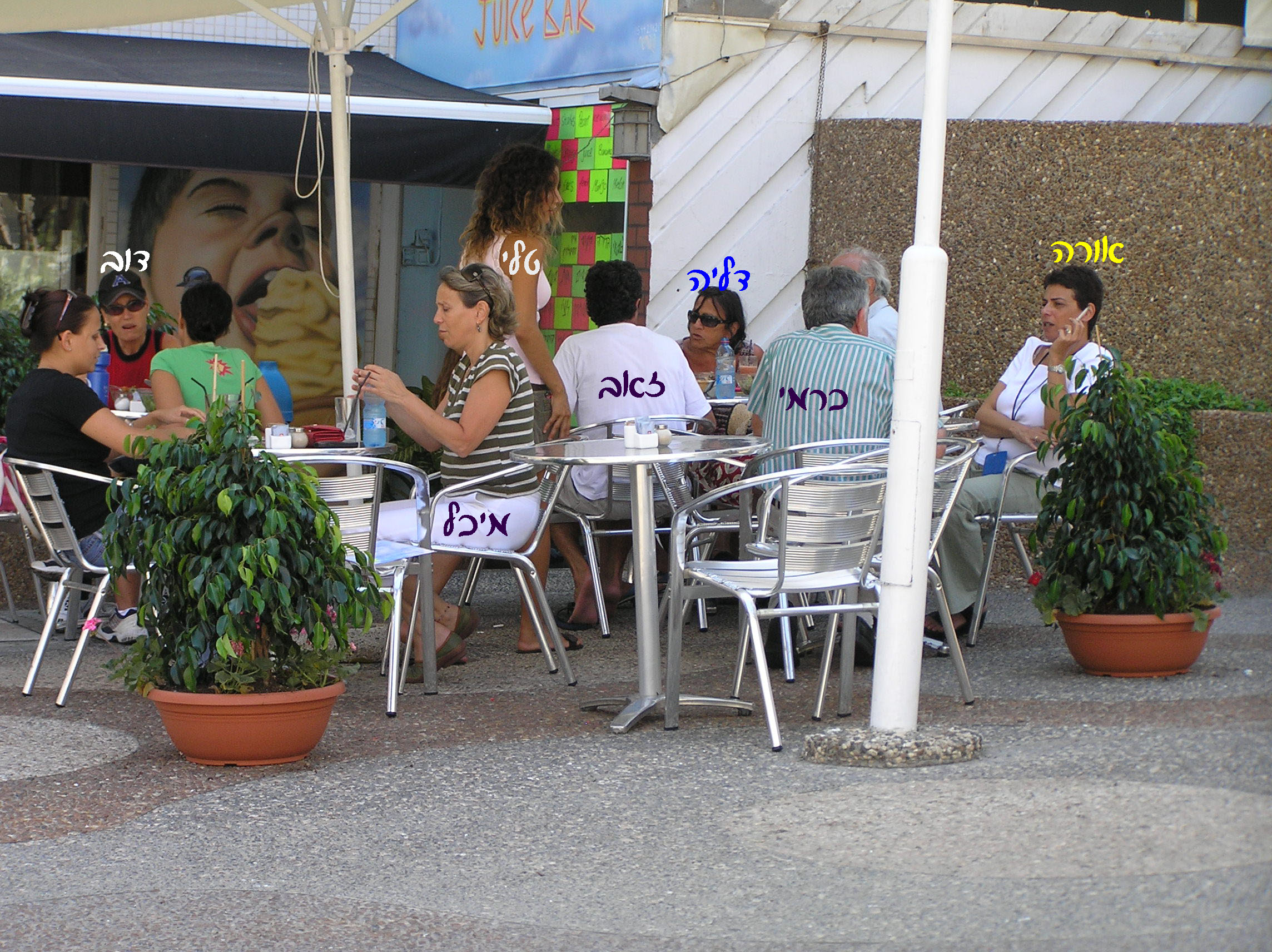בֵית קפֶה בְתֵל אביב

100.00 %
כמה אנשים נִרְאים בתְמוּנה? אני רואה עשׂרה.
רואים שְני עמוּדים לְבנים. קרוב לְוודַאי שֶהֵם תומְכים בַסוכֵךְ.
מיכל פותחת בקְבּוּק מַיִם. או אוּלַי זה בקְבּוּק שֶל מיץ לימון.
יֵש לה מישְקפיים אבל היא לא מרְכּיבה אותם. איפה הֵם?
בכוֹס שֶלה יֵש קשית.
האִם היא לְבדה? לא, היא לא לְבדה. מוּל מיכל יושֶבֶת עוד אישה.
טלי היא המֶלְצרית. היא שואֶלֶת את דלְיה מה היא רוצה לְהזְמין.
מוּל דלְיה יושֵב זְאב. לא רואים אֶת פנָיו, זאת אומֶרֶת, הפּנים שֶלו.
רואים רק אֶת הגב שֶלו.
אורה יושבת על-יד עציץ שֶיֵש בו צֶמַח גדול. היא מְדַבֶּרֶת בַטֶלֶפון.
טלי, המֶלְצרית, וְזְאֵב נועלים כפְכפים.
האִם כרְמי נִרְאֶה זקֵן או צעיר?
| בֵית קפֶה | cafe | לְבד | alone | ||
| מֶזֶג האוויר | the weather | מוּל | facing, opposite | ||
| נָאֶה | fair | מֶלְצר מֶלְצרית | waiter, waitress | ||
| בחוּץ | outside | להזמין, הזְמין | order, invite | ||
| נִרְאֶה, נִרְאים | visible | פנָיו | his face | ||
| עמוּד | pole, column | פנים | face | ||
| קרוב לְוודַאי | probably | גב | back | ||
| תומֵךְ | supporting | עציץ | planter, flower pot | ||
| סוכֵךְ | awning, canopy | צֶמַח | plant | ||
| נועֵל, נעל | wear shoes | מיץ | juice | ||
| מרְכִּיב, הִרְכִּיב | wear glasses | כפְכַפים | open-backed sandals | ||
| קשית | drinking straw | זָקֵן | elderly | ||
| עקֵב | heel | גְלידה | ice cream |
הֶעָרָה
FYI לידיעתך
Hebrew has surprisingly few "foreign" or words borrowed from other languages The Academy of the Hebrew Language has coined many thousands of words for use in Modern Hebrew. You can visit their website! HERE
A foreign word is called מילה לועֲזית